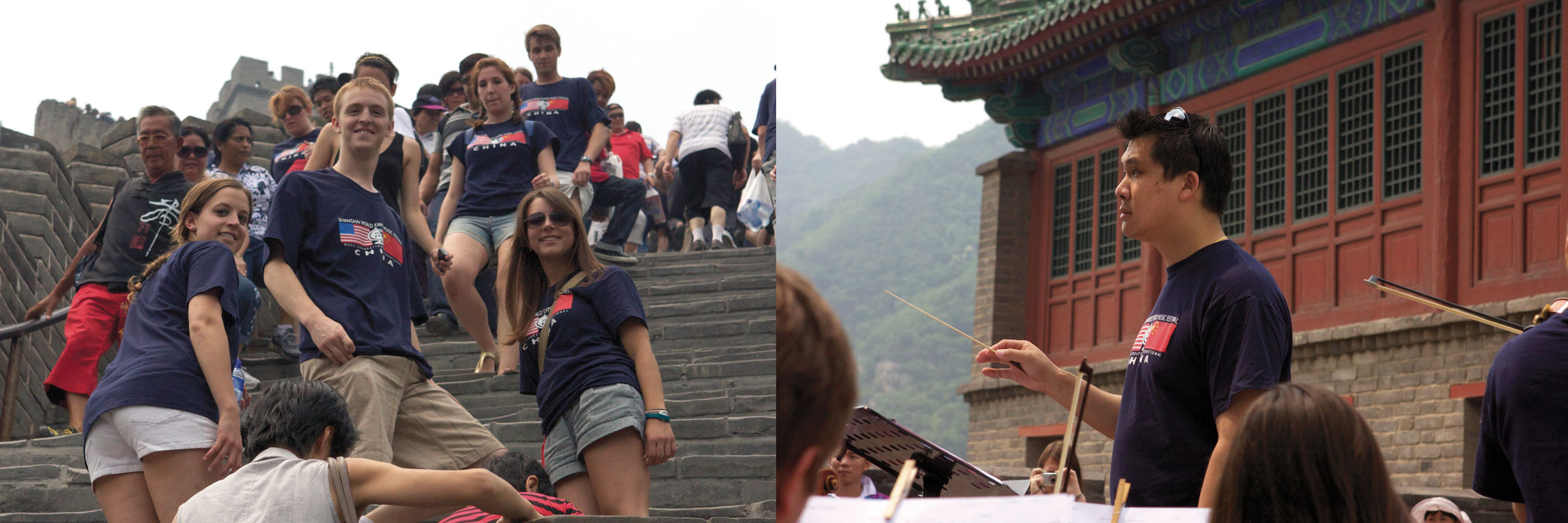Students climb the Great Wall, where some performed under the direction of Associate Professor of Music Ching-chu Hu, during a tour of China in June.
Several Chinese dynasties, millions of workers, and quite a few centuries saw the construction of the Great Wall. It was built with the purpose of keeping out barbarian tribes from the north, but those emperors unwittingly created a characteristic other than sheer size for their defenses–extraordinary acoustics. In June, 67 Denison student-musicians got to try them out.
Led by Music Department Chair and Associate Professor Ching-chu Hu and Choral Director Wei Cheng, five Denison ensembles–the Denison Chamber Singers; the Symphony Orchestra; the Singers’ Theatre Workshop; the bluegrass ensemble, Lemongrass; and the swing-jazz combo, Strings ‘n Things–explored three cities in 10 days, giving five performances along the way. On the itinerary were Shanghai, Xi’an, and Beijing, where the ensembles performed on the Great Wall. “The mountains acted as a sound wall,” says Hu. “People all the way up the Wall could hear us playing.”
The group wanted to showcase not only what Denison musicians could do, but American composers and American music in general. “The Chinese have heard jazz, but not bluegrass,” says Hu. “It’s so upbeat and toe- tapping that it’s easily accessible.”
Playing the Great Wall was certainly a highlight, so was the 2010 World Expo in Beijing, but Hu thinks the welcoming ceremony at Xi’an was the best experience of the tour. Having recently agreed to sponsor an inter- national music festival, the city greeted the Denison musicians with a glorious ceremony usually reserved for heads of state–Bill Clinton was presented with the same one when he visited in the late ’90s.
“Denison was given a key to the city,” says Hu, after which the groups were treated to an extravagant show of music, dancing, acrobatics, and martial arts. When the performance was over, they were led past the city wall to a banquet for the more than 1,000 people in attendance. “You can go back to the Great Wall, you can travel with friends and play in concert halls, but that opening ceremony was once in a lifetime,” says Hu.
Along with sharing American music, Hu hoped to expose students to the world outside academic walls by allowing them to explore another culture, Chinese music, and Chinese performances. “We wanted to give students the experience of music in a different context,” says Hu, “so that they can better appreciate the music that they play here.”

